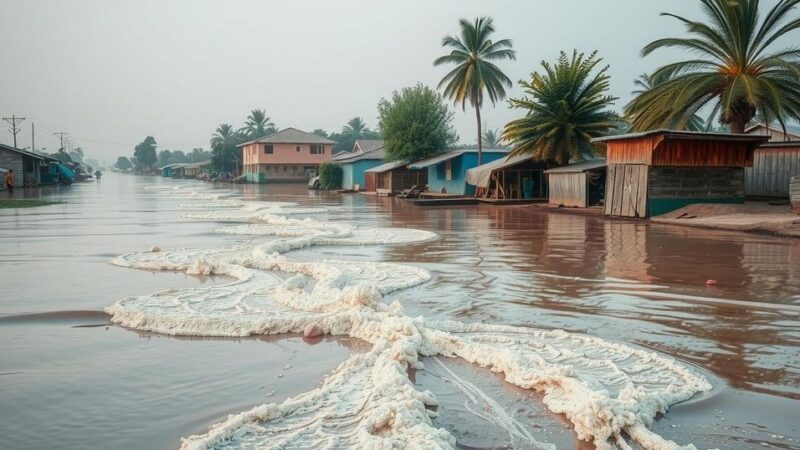Malawi faces severe challenges from climate change, with disasters leading to over USD 1.19 billion in economic losses from 2015 to 2023. Frequent storms and cyclones disrupt recovery efforts, threatening the nation’s development goals under the Malawi 2063 agenda. Former President Joyce Banda highlights the need for substantial international support to address these challenges effectively.
Malawi is grappling with the severe repercussions of climate change, which have caused immense economic losses since 2015. The Department of Disaster Management Affairs (Dodma) estimates these losses to exceed USD 1.19 billion, primarily due to tropical storms and cyclones. Dodma’s deputy director for recovery, Fedson Chikuse, notes that the country requires about USD 1.7 billion for recovery efforts, significantly impacting the agricultural sector—the foundation of Malawi’s economy.
The World Meteorological Organization reports highlight that African countries, including Malawi, are losing a significant percentage of their GDP to climate-related disasters. Cyclones, such as Idai in 2019 and Ana in 2022, alongside recent events like El Niño, have devastated livelihoods and infrastructure, affecting millions, including displaced families such as those of Pilirani Mtupa, who mourn the loss of their homes and farmland.
The launch of the Malawi 2063 development agenda aimed to boost the nation’s economic prospects; however, frequent climate-related disasters have hampered this progress. Thomas Chataghalala Munthali of the Malawi National Planning Commission warns that recent shocks could jeopardize the goal of attaining lower-middle-income status by 2030, and possibly delay the overarching 2063 vision.
Former President Joyce Banda emphasizes the urgent need for international support and financing to address climate change impacts, advocating for robust funding to facilitate adaptation and recovery efforts. Malawi finds itself at a critical juncture as natural disasters increasingly threaten its long-term aspirations for economic growth and resilience to climate change.
Extreme weather events, exacerbated by climate change, have wrought havoc on Malawi’s economy and development aspirations. The country has faced multiple cyclones and storms that have together inflicted substantial financial losses. The reports produced by Dodma and the World Meteorological Organization shed light on the economic burden carried by nations like Malawi, demonstrating the urgent need for international financial support to address climate-related challenges effectively. Additionally, the Malawi 2063 vision represents the government’s plan to transform the economy, yet this ambitious goal is jeopardized by the realities of recurrent natural disasters, challenging the country’s social and economic progress. Advocates like Joyce Banda are calling for increased funding to tackle the urgent needs of affected communities.
Malawi’s struggle against climate change highlights the urgent need for sustained international support to help rebuild and adapt. The impact of extreme weather threatens the nation’s economy and undermines its ambitious developmental goals outlined in Malawi 2063. As the frequency and intensity of these disasters increase, it is imperative that both global stakeholders and local authorities collaborate to ensure the resilience and recovery of vulnerable communities.
Original Source: dialogue.earth







